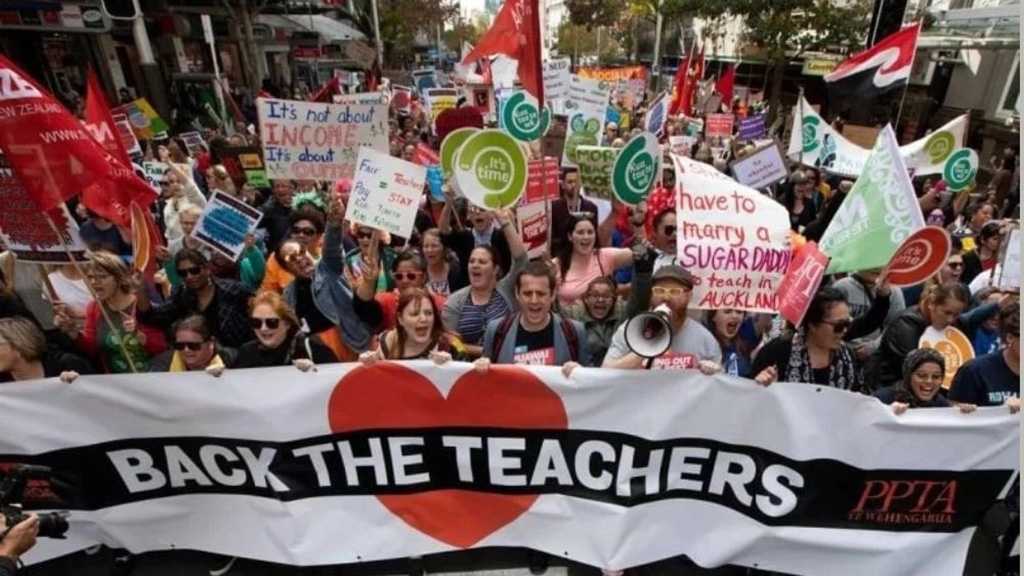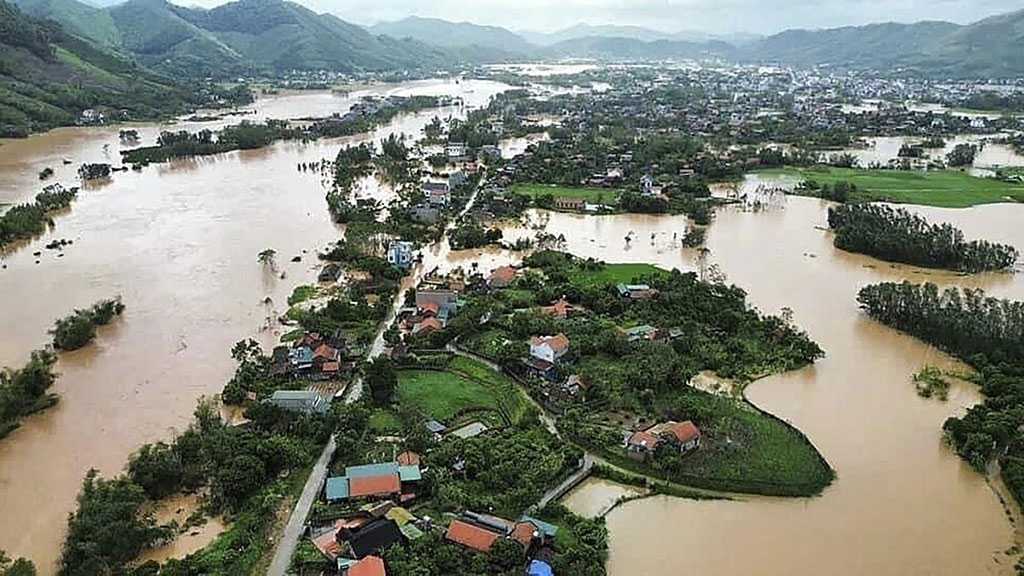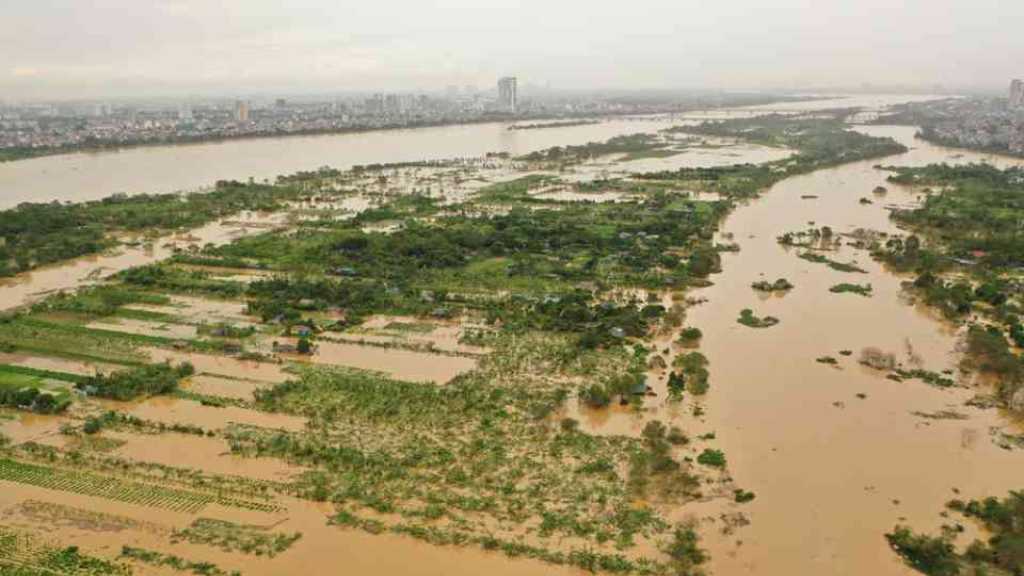Nearly 50k Teachers Strike in New Zealand Over Pay, Cost of Living

By Staff, Agencies
Nearly 50,000 teachers and early childhood educators in New Zealand have walked off their jobs, demanding better pay and working conditions, after union talks with the Ministry of Education stalled.
The strike, which was organized by the Post Primary Teachers Association [PPTA] and New Zealand Educational Institute [NZEI], started on Thursday.
Teachers demanding better pay waved placards declaring "can't afford the dentist" and "too poor to print good signs" as the one-day strike forced kindergartens as well as primary and secondary schools to close across the country.
Teachers "want to send a message to the government about how serious we are about needing change," said Mark Potter, president of the New Zealand Educational Institute.
"We all want the best for our students, but without changes to the system, we can't give it to them," he said, adding that the existing offerings from the government were insufficient for teachers, principals, or kids.
Education Minister Jan Tinetti, a former principal, told thousands of protesters outside parliament that she was disappointed to see teachers strike and wanted the dispute resolved quickly and promised that the government would improve its position.
"We know it's been a really tough time for teachers over the last couple of years, as it has been for everybody, but my heart goes out to them," Tinetti said.
New Zealand's Prime Minister Chris Hipkins, who was appointed in January, promised to cut back government reforms to focus on the "global pandemic of inflation." The Labor government has said it will refocus on issues related to rising costs.
Teachers, traditionally a key voting base of the Labor Party, are the latest public servants to walk off their jobs demanding more money for themselves and for their schools as costs go up in New Zealand.
Trade unions argued that the government's latest pay offer did not match inflation and that the education sector was at a "crisis point" due to teacher shortages.
New Zealand’s inflation rate remains high, with food prices up 11.3% year-on-year in December 2022 – the biggest increase in more than three decades.
The cost of living has become a major political issue in New Zealand. Recent figures have suggested that New Zealand's economy is shrinking, fueling fears of a looming recession.
New Zealand spent two quarters in recession in 2020 because of tight restrictions when the COVID-19 pandemic hit, but prior to that, the economy had not contracted since late 2010.
Comments
- Related News

Typhoon Yagi: More than 140 Dead in Vietnam
2 months ago


